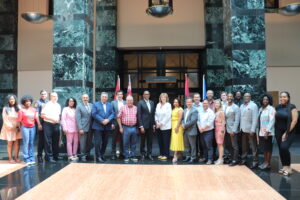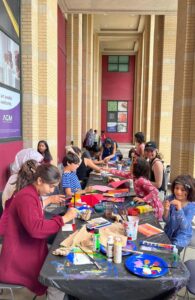Animal Services provides a range of animal related services, including animal care, education, enforcement services and pet licensing. Staff respond to concerns regarding animal-related safety and nuisance issues, while working with residents to promote responsible pet ownership. The Animal Care and Control By-law guides the work of Animal Services, outlining regulations aimed at safeguarding animal well-being.
Wildlife Relocation
Mississauga is home to diverse wildlife, which can be observed in both public and private spaces. It is important for residents to learn how to respond or interact with wildlife of various life stages during different seasons and how to protect themselves, their homes and their pets from unwanted encounters with nuisance wildlife.
Animal Services acts in accordance with the provincial government’s wildlife laws and regulations and refrains from the removal of healthy wildlife on private and public property. Provincial laws generally prohibit capturing and relocating live wildlife except in specific circumstances where the owner is protecting their property. For relocation to be viable, residents must proactively make their property less attractive to wildlife. This includes removing food attractants, eliminating sources of drinking water, and wildlife-proofing their residence.
Animal Services provides the following services to address nuisance wildlife:
- Removal of animals that are accessible and deemed sick, injured, or distressed;
- Animals are accessible if they are on the ground and in open spaces;
- Removal of wildlife that are carriers of the rabies virus (e.g. racoons, skunks, bats) from accessible interior dwelling spaces where they pose an immediate threat to safety; and
- Direct residents to qualified contractors to assist with the removal of nuisance wildlife from private property.
Wildlife Resource & Education
Animal Services provides extensive resources and educational materials to assist residents in addressing wildlife related concerns. By visiting www.mississauga.ca/wildlife, residents can access valuable information on how to responsibly interact with wildlife throughout the year and safeguard their homes and pets from unwanted encounters with nuisance animals. Additionally, attached to this email are pamphlets and brochures developed by Animal Services for wildlife resident education.
For inquiries regarding healthy nuisance wildlife, residents have multiple avenues for assistance. They can visit the City’s website, call 311, or email mypet.info@mississauga.ca to connect with a dedicated Public Education Officer. Through these channels, residents can obtain the necessary contacts if they encounter healthy wildlife on their property and report instances of ill or injured wildlife.





